Agriculture
January 3, 2024
Grundfos AQtap
Read SolutionImplemented by
Grundfos
Updated on December 26, 2023
·Created on August 27, 2015
A wind-powered groundwater pump.
The Kijito 2008 is a model within the Kijito 2000 series of small wind pumps manufactured by Bob Harries Engineering Ltd (BHEL). Kijito wind pumps are prevalent in the East Africa region and come in a range 8 – 26 ft (2.44 – 7.93 m) of rotor diameters. The Kijito 2000 series is intended to be suitable for small holder farmers, with water sources of about 20 m below ground and who need a limited amount of water for livestock and domestic needs.
Target SDGs
SDG 6: Clean Water and Sanitation
SDG 7: Affordable and Clean Energy
Market Suggested Retail Price
$2,790.00
Target Users (Target Impact Group)
Community
Distributors / Implementing Organizations
This product has been implemented by Bob Harries Engineering Ltd (BHEL).
Competitive Landscape
Direct competitors include IZ Southern Cross Windmill.
Countries
Kenya, Tanzania
Manufacturing/Building Method
This product is produced in Thika, Kenya by BHEL.
BHEL have staff of 20 skilled personnel, who manufacture the entire range of windpumps and pump cylinders. Apart from the imported ball bearings, the entire Kijito Windpump range is manufactured using local components at the BHEL workshop.
Intellectural Property Type
Trademark
User Provision Model
The product can be ordered directly by contacting BHEL.
Distributions to Date Status
By 2002, approximately 300 windpumps were constructed. An exact number of distributions to date is unknown, however, Kijito design and currently produce about 25 windpumps a year with a capacity to produce up to 50 machines as of 2008.
Pump type
Wind powered pump
Power requirement (W)
None
Average flow rate (L/min at specific head)
78.47 L/min at 20 m for a 6 m rotor at 4-6 m/s wind speed.
Maximum head (m)
36.5 – 152 m
Diameter (cm)
Unknown
Design Specifications
The Kijito 2008 windpump transmits power from the eccentrically placed rotor to the pump through a rocker to the pumprods. All rotating components run on ball and roller bearings, which require lubrication twice a year using a vehicle grease gun. The Kijito 2008 model specifications follow:
Rotor Diameter: 8 ft (2.4 m) with 12 blades. The models range between 8 – 26 ft (2.44 - 7.93 m) of rotor diameters.
Tower: Steel tubular mast with steel rod guides hinged at the tower base. Kijitos are normally supplied on 30 ft (9 m) tripod towers. However extension sections are available as options to increase the rotor height and get better performance. All towers are hinged at their bases to allow easy erection and servicing. This also greatly facilitates access to the borehole when the wind pump is lowered, and reduces borehole and pump maintenance time and costs.
Tail: Hinged side vane attached to the transmission via a steel boom providing automatic over speed control by means of yawing activated by the eccentrically placed rotor and hinged vane.
Furling: Done by hand with a stop rod on the transmission.
Weight: Rotor 50 lbs (22.7 kgs), Transmission 104 lbs (47 kgs), Tower 198 lbs (90 kgs).
Technical Support
The system can be installed by the customer, using instructions provided, and is transportable in most 1 tonne pick-ups. Alternatively, a foreman can be provided by BHEL to oversee the installation assuming housing is provided.
Replacement Components
The rotor blades can be individually replaced, if damaged for any reason.
Lifecycle
The product can function for ~20 years, with proper operations and maintenance, which can be challenging.
Manufacturer Specified Performance Parameters
The pumping yield depend on wind conditions. The manufacturer specifies a 20 ft (6 m) rotor can provide 78.47 L/min at 20 m fat 4-6 m/s wind speed.
Vetted Performance Status
Performance testing has been conducted by the Intermediate Technology Development Group –ITDG (now Practical Action) determining wind pump performance.
Safety
No hazards listed by designer.
Complementary Technical Systems
The product can include a 10 ft (3 m) tower extension.
Academic Research and References
Harries, M., 2002, Disseminating wind pumps in rural Kenya – Meeting rural water needs using locally manufactured wind pumps, Energy Policy, 30, pp. 1087-1094.
Kenna, J.P., Burton, J.D., Pinilla, A.E., 1987, Performance Monitoring of Windpumps in Kenya, Wind Engineering, 11, pp. 141-152.
Ogana, W., 1987, Wind Energy Development in Kenya – A Review, Solar & Wind Technology, 4, pp. 291-202.
Ogana, W. (1987) “Wind energy development in Kenya—A review,” Solar & wind technology, 4(3), pp. 291–303. doi: 10.1016/0741-983x(87)90060-9.
Welcome to Kijito 2008 Windpump. Available here
Tribology Brookes Bell. Available here
Price list Available at: kijitowindpowerkenya.co.ke
Primary competitors include Southern Cross Windmill, Dempster, Climax, and Paldaw Wind Pump.
Goal 6 Sdgs.un.org. Available here
Kijito design currently produce about 25 windpumps a year with a capacity to produce up to 50 machines as of 2008. Read more
Average flow rate (L/min at specific head)
Performance Monitoring of Windpumps in Kenya information available here
No third-party testing. Performance has been conducted by practical action
Compliance with regulations
Unknown
Evaluation methods
Field tests and implementation studies have been conducted by BHEL and are documented as case studies. Feasibility studies (primarily economic) have been conducted by UNIDO.
Feasibility studies (primarily economic) have been conducted by UNIDO.
Other Information
None

Agriculture
January 3, 2024
Implemented by
Grundfos
Agriculture
December 26, 2023
Implemented by
SOUTHERN CROSS INDUSTRIES
Agriculture
December 27, 2023
Implemented by
SunPumps
Agriculture
January 16, 2024
Implemented by
Solvatten
Agriculture
January 20, 2024
Implemented by
Technology for Tomorrow (T4T) Africa
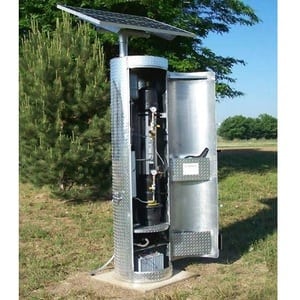
Agriculture
January 17, 2024
Implemented by
Innovative Water Technologies
Agriculture
January 16, 2024
Implemented by
wateroam
Agriculture
November 19, 2024
Implemented by
STAMP Investments

Agriculture
January 25, 2024
Implemented by
Katadyn Group
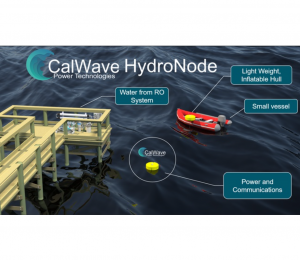
Agriculture
February 5, 2024
Implemented by
CalWave
Have thoughts on how we can improve?
Give Us Feedback